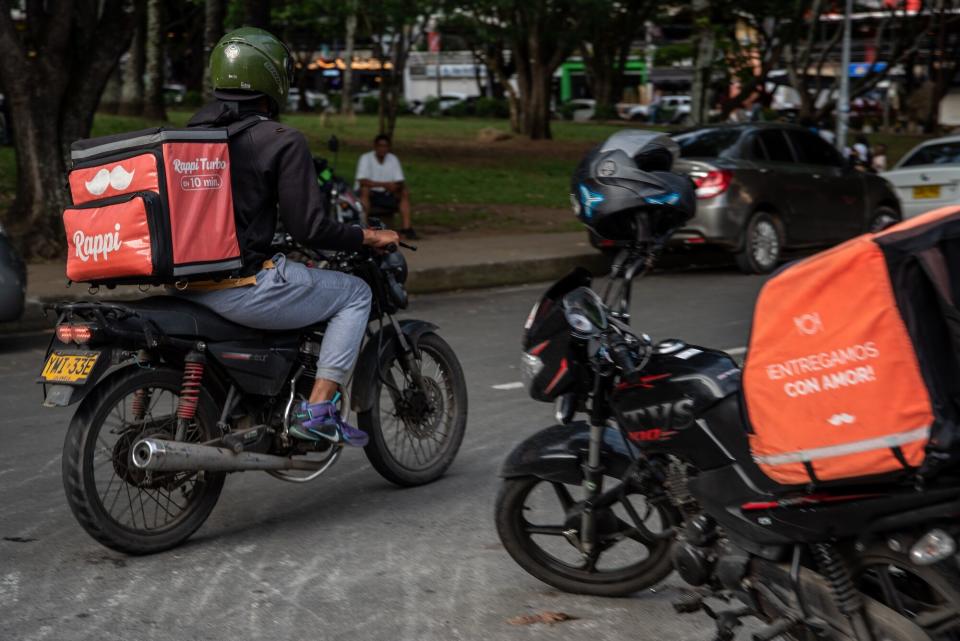Colombian Food Delivery Apps to Pay Workers’ Social Security
(Bloomberg) -- Colombian delivery apps reached a preliminary deal guaranteeing social security payments for 120,000 workers, as the government of President Gustavo Petro seeks to boost workers’ rights.
Most Read from Bloomberg
UBS Flags Cost Cuts After $29 Billion Credit Suisse Windfall
Europe's Biggest Oil Company Quietly Shelves a Radical Plan to Shrink Its Carbon Footprint
The deal could see delivery companies including Rappi Inc. pay 60% of their workers’ health and pension contributions even while remaining independent contractors, according to an agreement between Colombia’s government and Tanzanian, which represents Rappi, Didi and others, the group’s director José Daniel López said.
Currently, delivery couriers don’t get these benefits.
For Rappi, a delivery app backed by SoftBank Group Corp., these costs could amount to more than 6 billion pesos ($1.4 million) a year, according to estimates by Americas Markets Intelligence.
The agreement falls under Petro’s relaunched labor reform, part of his attempt to overhaul the nation’s economic model by boosting worker rights and increasing the state’s role in health care and pension provision.
While a previous bill was shelved earlier this year due to a fracturing government coalition, the Petro administration sent an updated bill to congress earlier this month. This would impose significant restrictions on temporary contracts, establish a maximum work day of 8 hours and would make it harder to dismiss workers.
Read more: SoftBank-Backed Delivery App Rappi to Offer Loans to Restaurants
Labor committees in the senate and the lower house must vote on the proposal before it’s discussed by the full congress. Business organizations such as ANDI and Fenalco have warned that more restrictive labor laws will increase levels of unemployment and informality.
Rappi is one of Latin America’s most valuable startups, and data provider PitchBook last year estimated its value at $5.36 billion. Sequoia Capital, Andreessen Horowitz and Tiger Global Management are some of its investors.
A press representative for Rappi declined to comment.
The new policy comes as apps face pressure from investors to cut costs and generate profits, Americas Markets Intelligence analyst Diego Rodríguez said.
“It is very likely that the expenses derived from these regulations end up being carried by sellers and consumers,” Rodríguez said.
--With assistance from Oscar Medina.
Most Read from Bloomberg Businessweek
©2023 Bloomberg L.P.




